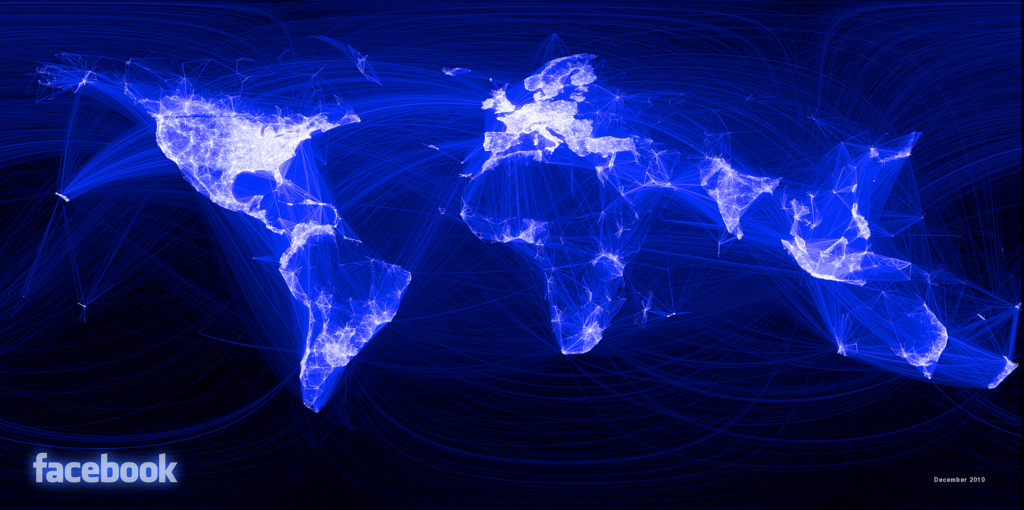“Facebook” and “Microsoft” are teaming up on a project called “Marea,” which will include laying down an eight-pair, fiber-optic cable across the Atlantic. It will start from Virginia and reach all the way to Spain. According to Wired, this cable line will allow for the transfer of 160 terabits of data per second; that is a typical home bandwidth multiplied by a factor of 16 million.
Supposedly, the move is meant to allow the two companies to have significantly more control over the data they transfer on a regular basis and to also allow for even more data to be transferred in comparison to the arrangement they have now. Most tech companies – including both “Facebook” and “Microsoft” – have had to rely on the cooperation of groups usually comprised of telecom companies in order to move the mountains of data that are necessary for their users.
With “Marea,” which means tide in Spanish, they will no longer be as beholden to these groups as before. This is because the cable they are laying down with the help of Spain’s “Telefónica SA” is actually the Atlantic’s highest-capacity link, according to an article by The Wall Street Journal.
“We were looking for other places away from New York. You want to make sure you have multiple paths. You can’t survive on one cable, or frankly two,” said Christian Belady, Microsoft’s general manager for data center strategy in the article.
This is not the first time that major tech companies decided to invest in large-scale projects to boost data transfer and bandwidth either. With every project, the goal was to reduce cost and to increase efficiency; things that tech companies had little control over as long as they relied on telecom companies. As a result of the string of projects to take away more and more control over data transfers from telecom companies, profit has declined significantly for these groups.
Although “Facebook” and “Microsoft” have refused to release the cost for their new project, research director for the market analysis firm TeleGeography Alan Mauldin says that trans-Atlantic cables typically run up to around $200 million. Depending on the region, equipment, and other factors though, the cost could go higher.



 Mexico Probes Miss Universe President Raul Rocha Over Alleged Criminal Links
Mexico Probes Miss Universe President Raul Rocha Over Alleged Criminal Links  Disney Investors Demand Records Over Jimmy Kimmel Suspension Controversy
Disney Investors Demand Records Over Jimmy Kimmel Suspension Controversy  6 simple questions to tell if a ‘finfluencer’ is more flash than cash
6 simple questions to tell if a ‘finfluencer’ is more flash than cash  Google and NBCUniversal Strike Multi-Year Deal to Keep NBC Shows on YouTube TV
Google and NBCUniversal Strike Multi-Year Deal to Keep NBC Shows on YouTube TV  Trump Proposes Two-Year Shutdown of Kennedy Center Amid Ongoing Turmoil
Trump Proposes Two-Year Shutdown of Kennedy Center Amid Ongoing Turmoil  Jazz Ensemble Cancels Kennedy Center New Year’s Eve Shows After Trump Renaming Sparks Backlash
Jazz Ensemble Cancels Kennedy Center New Year’s Eve Shows After Trump Renaming Sparks Backlash  Pulp are back and more wistfully Britpop than before
Pulp are back and more wistfully Britpop than before  Oscars 2025: who will likely win, who should win, and who barely deserves to be there
Oscars 2025: who will likely win, who should win, and who barely deserves to be there  Gulf Sovereign Funds Unite in Paramount–Skydance Bid for Warner Bros Discovery
Gulf Sovereign Funds Unite in Paramount–Skydance Bid for Warner Bros Discovery  Trump-Inspired Cantonese Opera Brings Laughter and Political Satire to Hong Kong
Trump-Inspired Cantonese Opera Brings Laughter and Political Satire to Hong Kong  Paramount’s $108.4B Hostile Bid for Warner Bros Discovery Signals Major Shift in Hollywood
Paramount’s $108.4B Hostile Bid for Warner Bros Discovery Signals Major Shift in Hollywood  Trump Signals He May Influence Netflix–Warner Bros Merger Decision
Trump Signals He May Influence Netflix–Warner Bros Merger Decision  Trump Faces Mixed Reception at Kennedy Center Amid Conservative Overhaul
Trump Faces Mixed Reception at Kennedy Center Amid Conservative Overhaul  Squid Game Finale Boosts Netflix Earnings, But Guidance Disappoints Investors
Squid Game Finale Boosts Netflix Earnings, But Guidance Disappoints Investors 































